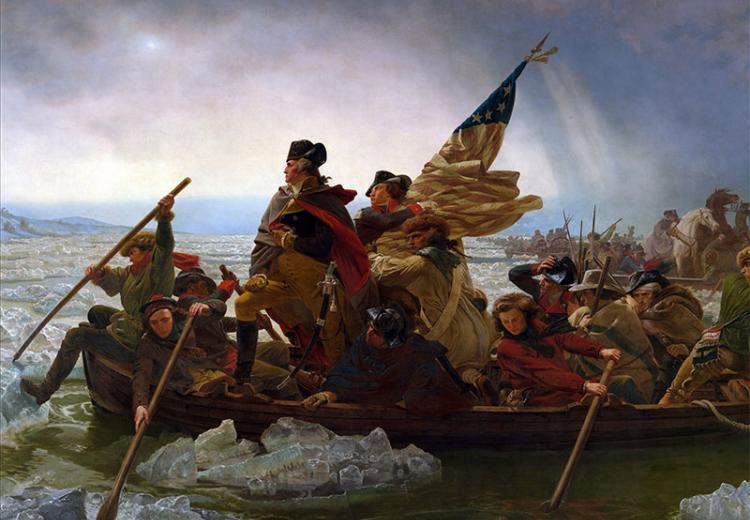Lesson 1: What Are the Qualities of a Good Military Leader?

Washington Crossing the Delaware by Emanuel Leutze (battle of Trenton).
George Washington's early military career (1754–1758)—during the Seven Years' War—was not uniformly successful. In his first battle, he and his men were ambushed and forced to surrender Fort Necessity on the Pennsylvania frontier. Washington's reputation for leadership and courage was based on his actions in another defeat at the hands of the French. In that battle, at Fort Duquesne (1755, often called the "Battle of the Wilderness" or "Braddock's Defeat"), Washington had two horses shot from under him and eventually had to assume command from the mortally wounded General Edward Braddock. Washington led the surviving British and Colonial soldiers on a successful retreat.
Later (1775–1783), Washington would lead the Patriots to a surprising victory over Great Britain, "the best-trained, best-equipped fighting force in the Western world. … Although he lost most of his battles with the British, year after year he held his ragtag, hungry army together"—from the EDSITEment resource The American President.
What combination of experience, strategy, and personal characteristics enabled Washington to succeed as a military leader?
Guiding Questions
What qualities made George Washington an effective military leader?
How were the responsibilities of the Commander-in-Chief affected by conditions during the Revolutionary War?
Learning Objectives
List qualities they believe made George Washington an effective military leader.
List some practical lessons Washington may have learned from his early military experiences.
Discuss some difficulties Washington faced as Commander-in-Chief.
Discuss how Washington responded to the difficulties he faced as the leader of the Continental Army.
Give examples of Washington's leadership during one or more Revolutionary War battles.
Summarize briefly the Newburgh Conspiracy.
Describe Washington's response to the Newburgh Conspiracy.
